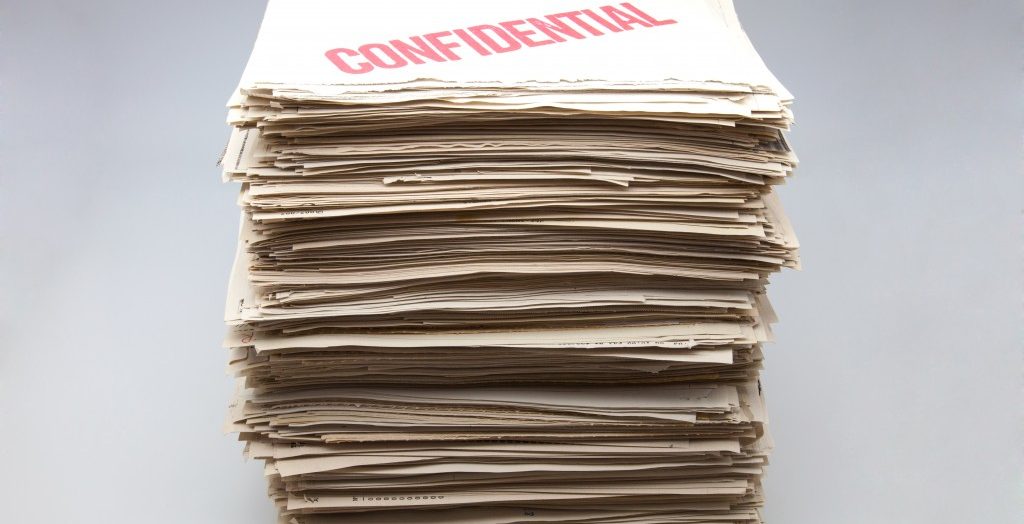In any business or organisation, a lot of paperwork keeps piling up and, eventually, some paperwork become useless or irrelevant. However, this paperwork may still contain private or confidential information about the company/organisation, its current and past employees and clients, its members and its operations. These documents can include bank account numbers, social security numbers, addresses, recipes, instructions, and other sensitive data that should only be accessed by authorised persons.
So, these old and irrelevant information need to be disposed of. Not only would they be taking up space, but they present the risk of being accessed by unauthorised personnel. Here are ways for your company or organisation to properly and permanently dispose of confidential papers:
Cutting and Punching
This is only recommended when there are only small amounts of papers to get rid of. This can be done through the use of paper cutters, scissors, and paper punchers to destroy and conceal valuable information that’s written on the papers.
Soaking
Soaking is done by putting documents in a container then pouring water inside and let them soak in. With enough time, the ink on paper becomes smudged, and the documents become unreadable. After which, you can squeeze out the water from the paper and dispose of them in the garbage bin. However, this can take a lot of time, effort, and water, so it’s only recommended for small volumes of confidential documents.
Burning
You can use a furnace or incinerator to get rid of confidential documents permanently. But generally, disposing of papers through open burning is against many state and national laws against air pollution, although in some cases, you can acquire a permit to do so and perform the disposal in accordance to open burn regulations of your city or state. So, before you opt to burn sensitive and confidential documents, make sure that you do so in compliance with state and city laws. Some companies offer paper incineration services for a fee while upholding industry standards and strict environmental laws.
Shredding

Shredding is perhaps the less messy, less environment-impacting, and most practical way to dispose of documents. Shredding is done through the use of a mechanical shredder which cuts and shreds paper into tiny pieces. If your company or organisation doesn’t have a paper shredder or needs to shred huge volumes of confidential documents, you can hire paper shredding companies to do it for you. Shredding is also amethod approved by the Health Insurance Portability and Accountability Act of 1996 (HIPAA) to dispose of paper documents. Additionally, shredded documents can easily be recycled, making it an environmentally-friendly option.
Reminder When Disposing
Always make sure that if your company or organisation wishes to dispose of essential documents on their own (and not through a third party disposal service), that the ones doing the shredding, cutting, soaking, or burning are people who are authorised to access confidential documents. You wouldn’t want to assign disposal to someone who shouldn’t have access to that information in the first place (i.e. having a cleaner dispose of documents that contain credit card numbers, bank account numbers, and social security numbers of employees and clients).
Third party disposal services such as paper shredding companies comply with information privacy law and regulations, so you wouldn’t have to worry about any documents being read or duplicated by unauthorised people.
Conclusion
Getting rid of your confidential documents is an essential part of a business or organisation’s operations to avoid unauthorised people from accessing and getting privileged information. A company or organisation should know that the method of disposal is just as important as planning and segregating which documents to get rid of. So the next time your office schedules its “spring cleaning” of old documents, consider using one of these methods when permanently disposing of confidential documents.






